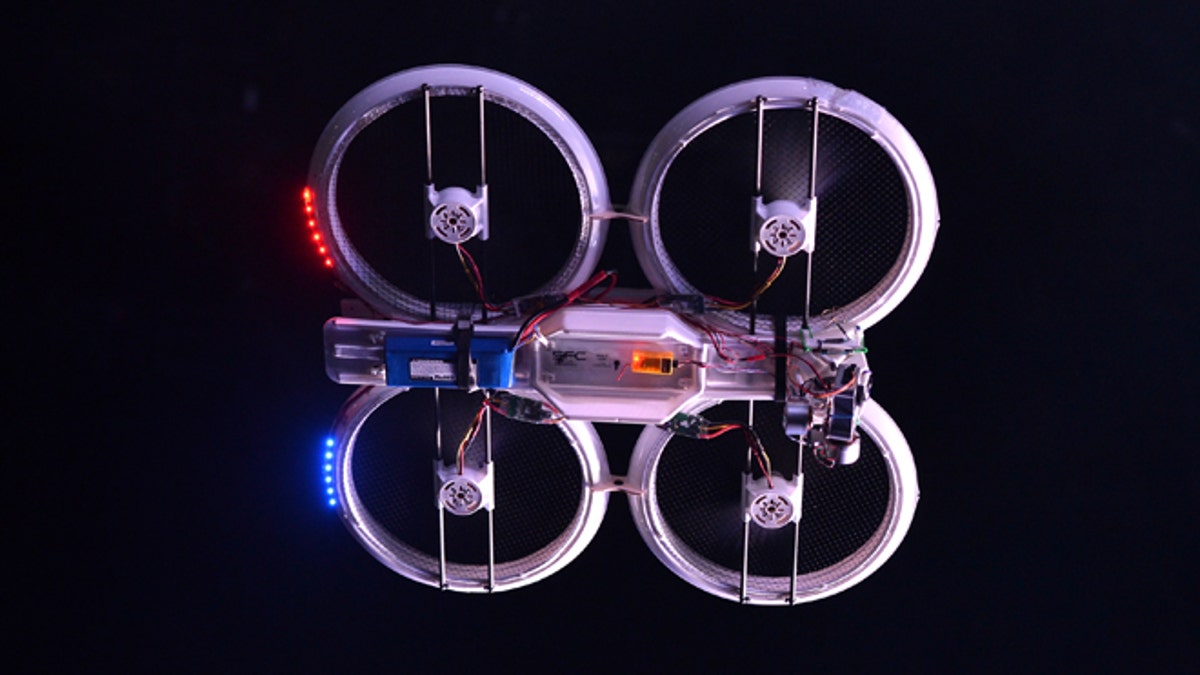
INDIO, CA - APRIL 18: Drone flys overhead during day 1 of the 2014 Coachella Valley Music & Arts Festival at the Empire Polo Club on April 18, 2014 in Indio, California (Photo by Kevin Winter/Getty Images for Coachella) (2014 Getty Images)
In San Salvador, a town where news happens fast, reporting is not only a dicey proposition but a time-consuming affair.
For years, reporters from the Salvadoran daily La Prensa Gráfica wished they could fly over the country’s capital to cover everything from murder scenes to car wrecks or just snag photos of daily life in San Salvador. Now, thanks to the growing market of civilian drones, journalists at the Salvadoran paper are getting bird's-eye views of the action on the ground.
“We’re showing the people what’s going on,” photojournalist Borman Marmol told the Global Post. “That way they can say, ‘Hey, I was there yesterday,’ or ‘Oh, that’s why I was in traffic.’”
While reporters in El Salvador – and a few other countries in Latin America – have begun experimenting with drones in news gathering, it doesn’t appear that this lofty leaning will make its way to the United States anytime soon. The U.S. bans the use of drones for news and other commercial ends and while the Federal Aviation Administration (FAA) is reviewing ethical concerns, the ability to actually use the technology likely wouldn’t take effect for two years.
“The New York Times can’t do what [La Prensa] is doing,” said Professor Matthew Waite of the Drone Journalism Lab at the University of Nebraska-Lincoln. “At least not without any serious legal hassle.”
Along with El Salvador, Brazil, Mexico and Peru all have news outlets that have experimented with drones. The Peruvian newspaper El Comercio sent one in the air to cover a large fire in December of last year and Mexico’s Reforma once used a drone to cover widespread student protests in Mexico City.
There is a concern over privacy rights from these drones and that the so-called “predator” capabilities could begin clogging up airspace across Latin America. In the sharply divided El Salvador, there are worries that biased news organizations could use drones to spy on political opponents.
“Even one drone with a video camera can do much damage to a person’s right to privacy,” said Alejandro Sanchez, a researcher at the Council on Hemispheric Affairs in Washington D.C.
Despite the concerns over privacy, some experts say that El Salvador is a great experimental airspace to test out how civilians can use drones in a variety of capacities.
“There’s been an increase in demand here,” Vladimir Lara, chief of photography at El Salvador’s La Prensa Gráfica said. “I know a few people have bought them to observe their farms.”
Follow us on twitter.com/foxnewslatino
Like us at facebook.com/foxnewslatino
